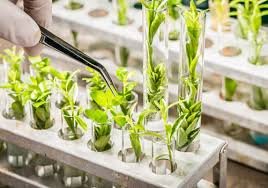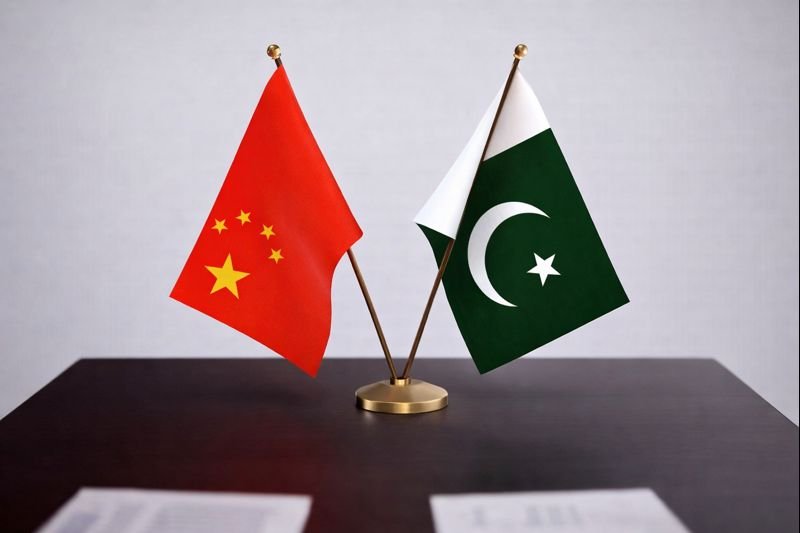
By: Hameed Ullah,
Environmental Specialist
World Environment Day, celebrated every year on 5 June, is not just a symbolic observance or ceremonial event. It is a powerful global call to recognise and respond to the most urgent crisis humanity has ever faced, the degradation of our natural environment. First established by the United Nations in 1972 during the Stockholm Conference on the Human Environment, World Environment Day has grown to become the largest global platform for public outreach, with millions of people participating in various activities worldwide. The aim is to encourage awareness and action for the protection of the environment, not just on one day but throughout the year. In 2025, this day carries even greater urgency as we witness worsening climate conditions, growing natural disasters, and the collapse of ecosystems that support life on Earth.
The planet is undergoing massive changes caused by human activity. Our modern industrial lifestyle, while full of comfort and technology, is damaging the Earth in countless ways. Climate change, which results from greenhouse gas emissions caused mainly by the burning of fossil fuels such as coal, oil, and gas, is heating the planet at an alarming rate. This global warming is leading to more frequent and severe heatwaves, wildfires, floods, hurricanes, and droughts. The glaciers are melting rapidly, and sea levels are rising, threatening coastal cities and small island nations. Millions of people are being displaced, and food and water security is becoming a growing concern. Entire ecosystems, such as coral reefs and rainforests, are under threat. The scientific community has warned that if the temperature of the Earth increases beyond 1.5 degrees Celsius compared to pre-industrial levels, the consequences could be irreversible.
In addition to climate change, the world faces the serious challenge of biodiversity loss. Human actions such as deforestation, overfishing, pollution, and habitat destruction are causing a mass extinction of species. Every living organism, no matter how small, plays an essential role in maintaining the balance of ecosystems. When species disappear, ecosystems weaken, and the services they provide to humans, such as clean water, fertile soil, pollination of crops, and disease control, are lost. Protecting biodiversity is not just an environmental concern, it is a necessity for our own survival.
Another alarming issue is pollution. Air pollution causes millions of deaths each year. Cities around the world are suffocating under clouds of smoke and harmful particles. Children and the elderly are especially vulnerable. Indoor air pollution caused by cooking with dirty fuels is also a major killer in many developing countries. Water pollution, too, is spreading disease and killing aquatic life. Many rivers, lakes, and oceans are being used as dumping grounds for industrial waste, agricultural runoff, and untreated sewage. The result is the destruction of freshwater sources and marine habitats.
Plastic pollution is another silent yet massive enemy. Every year, more than 300 million tons of plastic are produced, half of which is single-use. Much of it ends up in the ocean, where it breaks into tiny pieces known as microplastics. These are eaten by fish and eventually enter our food chain. Plastic has been found in the stomachs of birds, whales, and even unborn babies. The situation is so serious that the United Nations has declared plastic pollution as one of the biggest environmental challenges of our time. We must move toward a circular economy, where waste is minimised, products are reused and recycled, and natural resources are protected.
Deforestation is another grave threat to the planet. Forests are the lungs of the Earth. They absorb carbon dioxide, release oxygen, provide shelter to millions of species, and support the livelihoods of indigenous communities. Yet, every year, billions of trees are cut down for agriculture, mining, and infrastructure. This destruction not only accelerates climate change but also increases the risk of pandemics by bringing humans into closer contact with wild animals. Forest conservation and reforestation must be a priority for all nations.
The role of water in sustaining life cannot be overstated. Clean and accessible freshwater is essential for drinking, agriculture, sanitation, and industry. Yet water scarcity is affecting more than 2 billion people worldwide. Mismanagement, pollution, and overuse of water resources are creating conflicts and suffering. Conserving water, protecting watersheds, and ensuring fair access to water must be treated as global priorities.
On World Environment Day, it is crucial to remember that everyone has a role to play. This day is not only for environmentalists or policymakers. It is for every human being, from children to elders, from urban citizens to rural farmers, from public officials to private entrepreneurs. Governments must enact and enforce strict environmental regulations, shift subsidies from fossil fuels to renewable energy, and invest in green infrastructure. Businesses must adopt sustainable practices, reduce their carbon footprint, and make their supply chains more environmentally friendly. Schools and universities should integrate environmental education into their curriculum and inspire young minds to become environmental stewards. Religious leaders and cultural influencers should use their platforms to promote values of respect for nature. Media should highlight environmental issues regularly and give voice to communities affected by environmental degradation.
As individuals, we must rethink our choices. We can start by reducing our use of plastic, saving electricity and water, using public transport, avoiding food waste, planting trees, supporting local and organic food, and spreading awareness. Every small action matters. Together, they add up to a powerful movement.
Furthermore, World Environment Day should serve as a reminder of our spiritual and moral responsibility to protect the Earth. All major religions teach respect for nature and the importance of living in harmony with creation. Environmental care is not just a scientific issue, it is also a matter of ethics and justice. The poor and vulnerable suffer the most from environmental problems, even though they contribute the least to them. Climate justice means addressing this inequality and ensuring that solutions are fair and inclusive.
We must also value the traditional knowledge and practices of indigenous peoples who have cared for nature for generations. Their understanding of the land, plants, animals, and natural cycles can teach us valuable lessons about sustainability. Their rights must be respected, and they should be involved in decision-making processes related to land and natural resources.
Finally, let us remember that time is not on our side. The window to act is closing fast. If we do not take strong and immediate action, the damage will become irreversible. But if we act with courage, unity, and compassion, we can still turn things around. We can restore degraded lands, clean polluted rivers, protect endangered species, and create a cleaner, healthier, and more beautiful world.
World Environment Day is more than a date on the calendar. It is a global movement. It is a chance to change the course of history. Let us use this day to renew our commitment, to educate others, to influence leaders, and to take action. Because the Earth is not just our home, it is our life. If we save nature, nature will save us.






 Today's E-Paper
Today's E-Paper